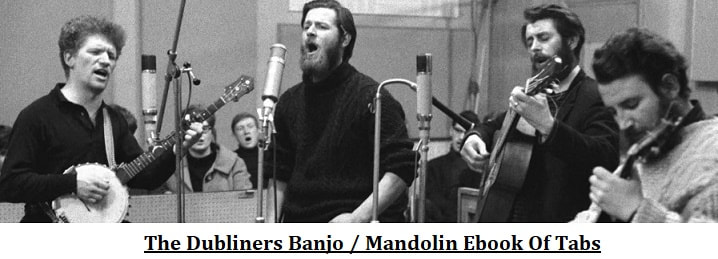Everyone's Gone To The Moon Sheet Music And Mandolin Tab
Everyone's Gone To The Moon Sheet Music And Mandolin Tab With Chords In The Key Of G Major and a version in D.
The song 'Everyone's Gone To The Moon' was released in 1965 by British singer-songwriter Jonathan King as a protest against the Vietnam War. It was a chart-topping hit in the UK and reached the top 10 in the US, but its significance extends beyond its commercial success. The song's lyrics and music have resonated with listeners for decades, and it continues to be a powerful commentary on war, isolation, and the human condition.
At its core, 'Everyone's Gone To The Moon' is a protest song. The Vietnam War was one of the most divisive and controversial conflicts in modern history, and the song's lyrics reflect the growing sentiment against it. The opening line, 'Streets full of people, all alone,' sets the tone for the song's themes of loneliness and isolation. The war had torn families apart and left many individuals feeling lost and disconnected from society. The next line, 'Roads full of houses, never home,' speaks to the destruction and displacement caused by the war. These powerful lyrics captured the feelings of many people at the time and became an anthem for those who opposed the war.
The title of the song, 'Everyone's Gone To The Moon,' is a metaphor for the idea that everyone has left to escape the chaos and destruction of the war. The moon, often seen as a symbol of isolation and detachment, represents a place far away from the turmoil of Earth. This sentiment is further emphasized in the chorus, 'And we're all so alone, no more joy or laughter, everyone's gone to the moon.' The repetition of this line drives home the idea that the war has robbed people of their sense of community and happiness.
In addition to its anti-war message, 'Everyone's Gone To The Moon' also touches on the universal human experience of feeling alone and disconnected. The lyrics, 'No one seems to care, that's the way it's supposed to be,' speak to the idea that in times of crisis, people often turn a blind eye to the suffering of others. This sentiment is particularly relevant in today's society, where many people feel isolated and disconnected despite living in a hyper-connected world. The song's message of loneliness and the desire for escape is still relatable to listeners today.
The music of 'Everyone's Gone To The Moon' is just as powerful as its lyrics. The haunting melody and simplistic arrangement add to the song's sense of isolation and despair. The use of a lone piano in the beginning, followed by a gradual build-up of instruments, perfectly captures the feeling of being alone and then overwhelmed by the chaos of war. The combination of the music and lyrics creates a powerful emotional impact that has stood the test of time.
In conclusion, 'Everyone's Gone To The Moon' is not just a song, but a powerful commentary on war, isolation, and the human experience. Its lyrics and music continue to resonate with listeners today, over 50 years after its release. As long as there are conflicts and feelings of loneliness in the world, this song will continue to hold relevance and impact. It stands as a testament to the power of music to inspire change and unite people in the face of adversity.
At its core, 'Everyone's Gone To The Moon' is a protest song. The Vietnam War was one of the most divisive and controversial conflicts in modern history, and the song's lyrics reflect the growing sentiment against it. The opening line, 'Streets full of people, all alone,' sets the tone for the song's themes of loneliness and isolation. The war had torn families apart and left many individuals feeling lost and disconnected from society. The next line, 'Roads full of houses, never home,' speaks to the destruction and displacement caused by the war. These powerful lyrics captured the feelings of many people at the time and became an anthem for those who opposed the war.
The title of the song, 'Everyone's Gone To The Moon,' is a metaphor for the idea that everyone has left to escape the chaos and destruction of the war. The moon, often seen as a symbol of isolation and detachment, represents a place far away from the turmoil of Earth. This sentiment is further emphasized in the chorus, 'And we're all so alone, no more joy or laughter, everyone's gone to the moon.' The repetition of this line drives home the idea that the war has robbed people of their sense of community and happiness.
In addition to its anti-war message, 'Everyone's Gone To The Moon' also touches on the universal human experience of feeling alone and disconnected. The lyrics, 'No one seems to care, that's the way it's supposed to be,' speak to the idea that in times of crisis, people often turn a blind eye to the suffering of others. This sentiment is particularly relevant in today's society, where many people feel isolated and disconnected despite living in a hyper-connected world. The song's message of loneliness and the desire for escape is still relatable to listeners today.
The music of 'Everyone's Gone To The Moon' is just as powerful as its lyrics. The haunting melody and simplistic arrangement add to the song's sense of isolation and despair. The use of a lone piano in the beginning, followed by a gradual build-up of instruments, perfectly captures the feeling of being alone and then overwhelmed by the chaos of war. The combination of the music and lyrics creates a powerful emotional impact that has stood the test of time.
In conclusion, 'Everyone's Gone To The Moon' is not just a song, but a powerful commentary on war, isolation, and the human experience. Its lyrics and music continue to resonate with listeners today, over 50 years after its release. As long as there are conflicts and feelings of loneliness in the world, this song will continue to hold relevance and impact. It stands as a testament to the power of music to inspire change and unite people in the face of adversity.




